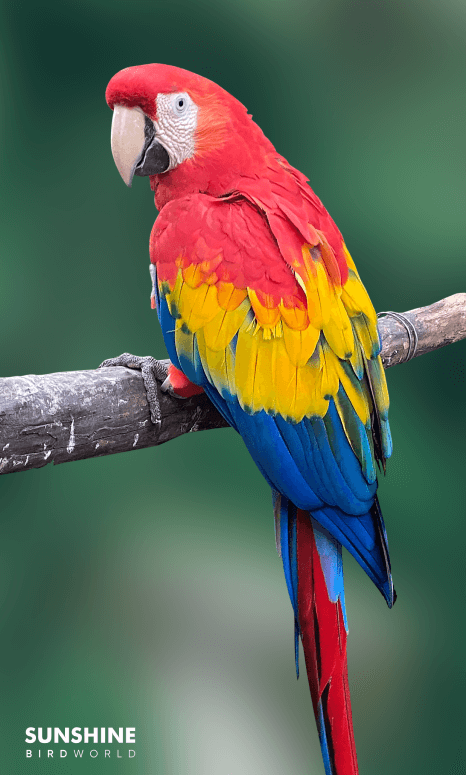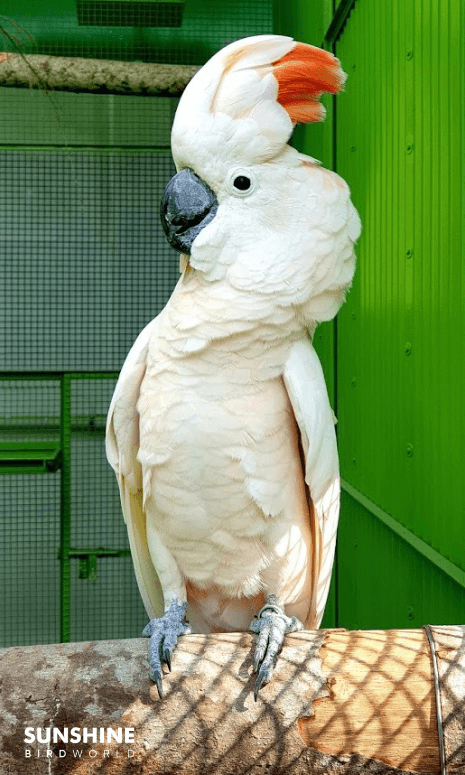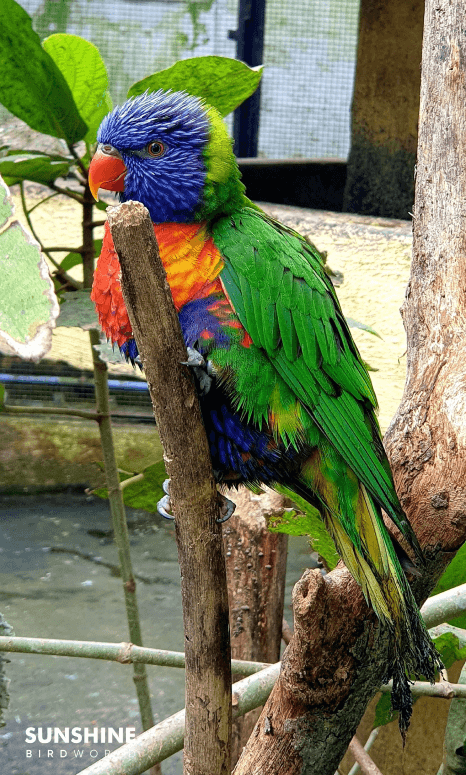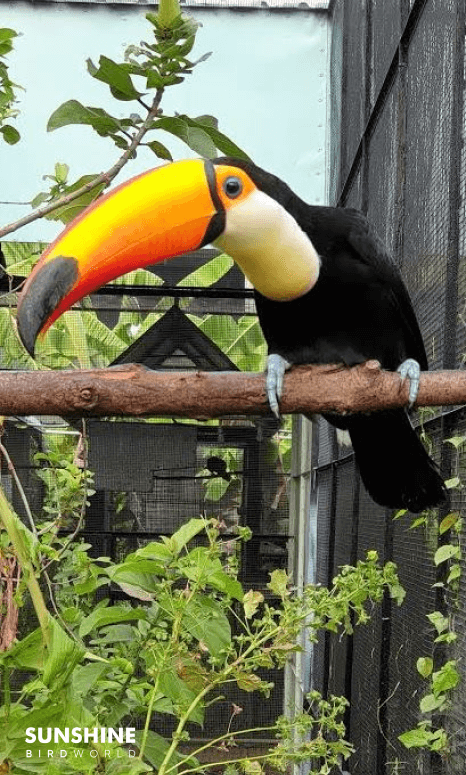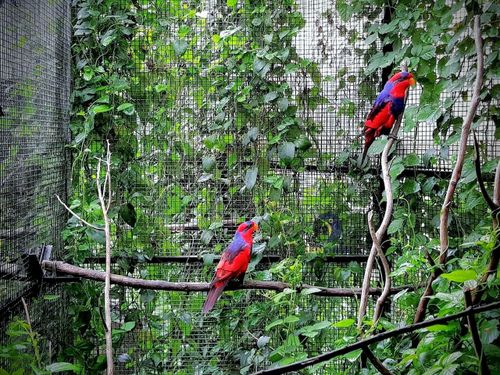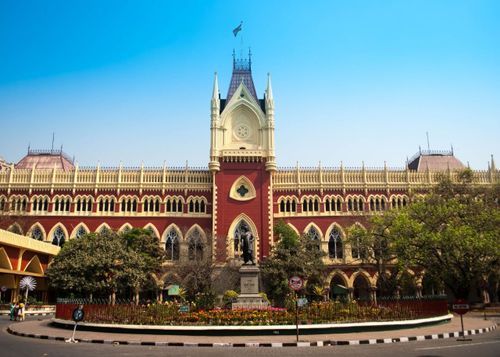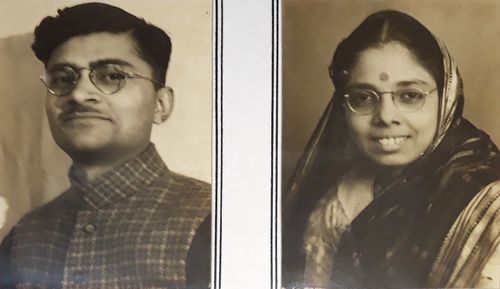The Talaud Red & Blue Lory
Sunshine BirdWorld's success story with Talaud Red & Blue Lory (Eos histrio talautensis)
Read more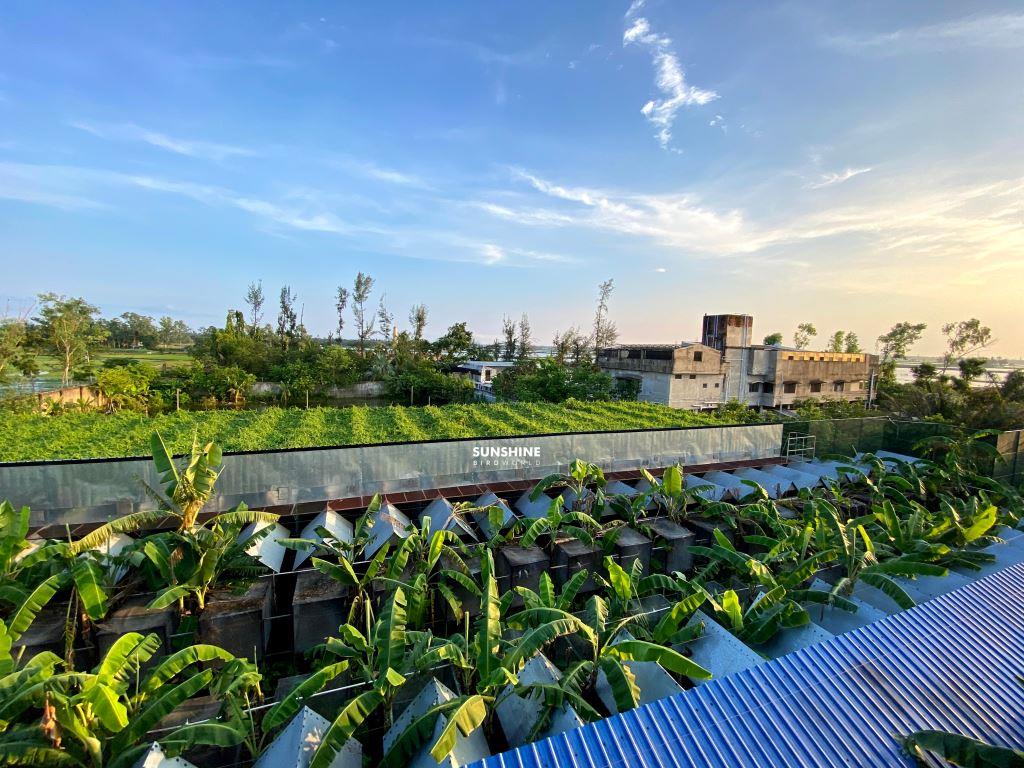
Development of ideal captive management protocols
Sunshine BirdWorld is an exotic Avicultural Breeding and Research Centre near Kolkata, India. Founded and managed with passion and devotion by Dr Debashis and Dr Anindita Banerjee, Sunshine BirdWorld is an international pioneer in the field of Aviculture. As nature laments the vanishing of the birds, wild flowers, butterflies and hundreds of plants and animal species, captive breeding as an art and science for conservation becomes more and more important. The focus at Sunshine BirdWorld is on developing ideal captive management protocols for sustained long-term health maintenance and positive and active propagation of exotic birds and small primates for the primary purpose of conservation of species. Sunshine BirdWorld is working relentlessly for decades to leap beyond the lofty standards it has set for itself. We also assist multiple Zoological Gardens of India to attain bigger and better goals in Aviculture. At present Sunshine BirdWorld is responsibly caring for a formidable breeding collection of birds and small primates. Our website gives you a glimpse into the wonderful world of exotic feathers at Sunshine.
About UsDiverse Birds at Sunshine BirdWorld
0+
Species of birds
0+
Area (in acres)
0
Species of Primates
0+
Species bred
2023 Avicultural Society of Australia Inc Convention hosted by The Goulburn Valley Branch at Shepparton
The 2023 Avicultural Society of Australia Inc. Convention is going to be hosted by The Goulburn Valley Branch at Shepparton from April 28th to 30th, with the theme “Aviculture, Moving Forward”. Amongst the distinguished speakers “not just from all around Australia, but from all over the world” will be Dr Debashis Banerjee, Founder-Director of Sunshine BirdWorld Avian Breeding And Research Centre. Debashis had been a speaker at Aves International Parrot Convention at Grafton NSW, Australia, way back in 2015 and due to last minute unavoidable circumstances could not present his lecture in the 2018 Parrot Convention of Australia Inc. Thus this time he is happy and eager to fly to the ever beautiful continent down under after a long time to share his knowledge and experience on Aviculture. He will speak on the following two topics : “Pionites Parrots : The Art & Science of Captive Management and Breeding” And “Aviculture@Sunshine BirdWorld” Sunshine BirdWorld wishes the Avicultural Society of Australia Inc. Convention a raging success with a memorable milestone of achievement.
Date
2023-04-28
Time
9:30 AM
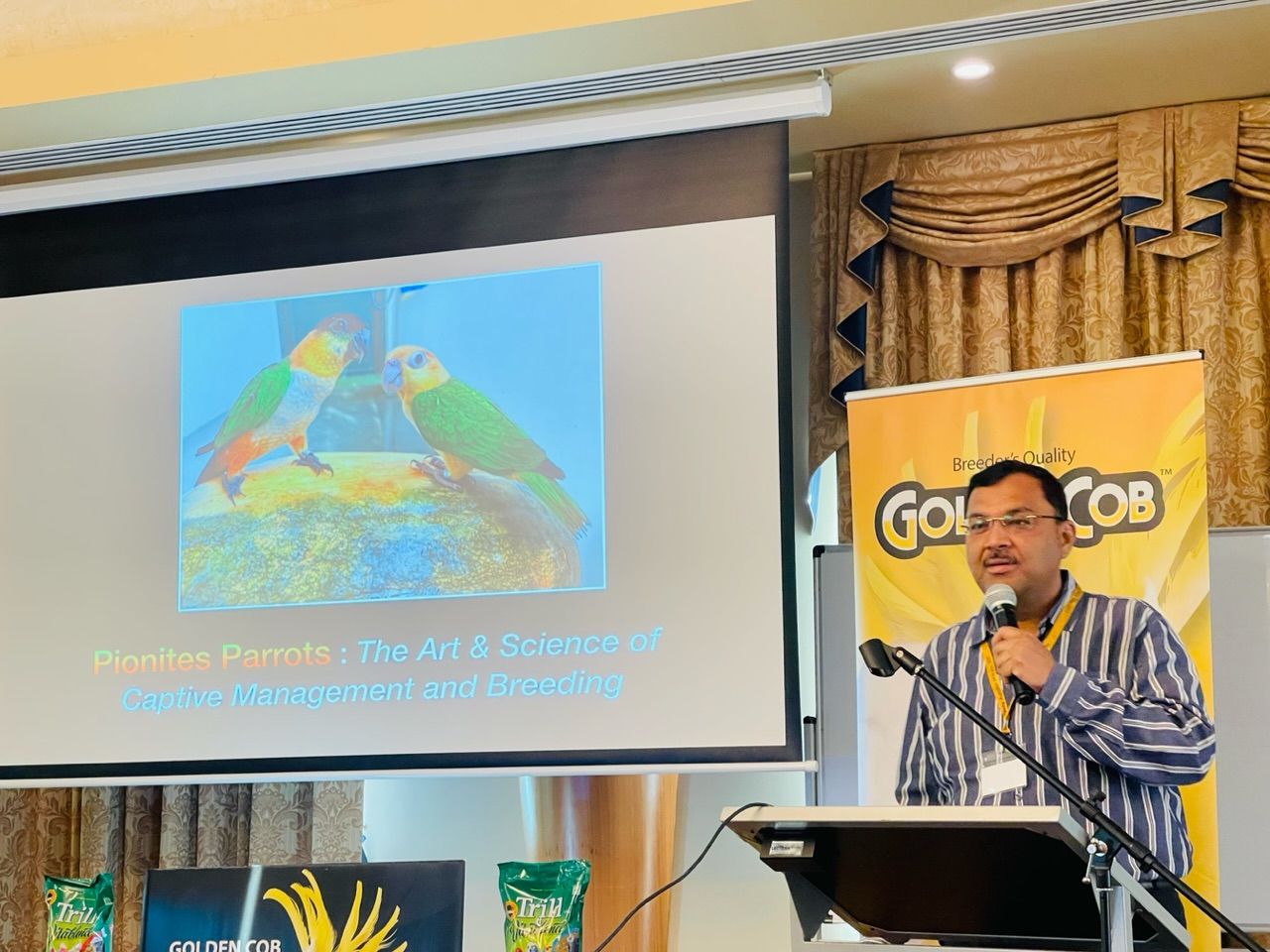
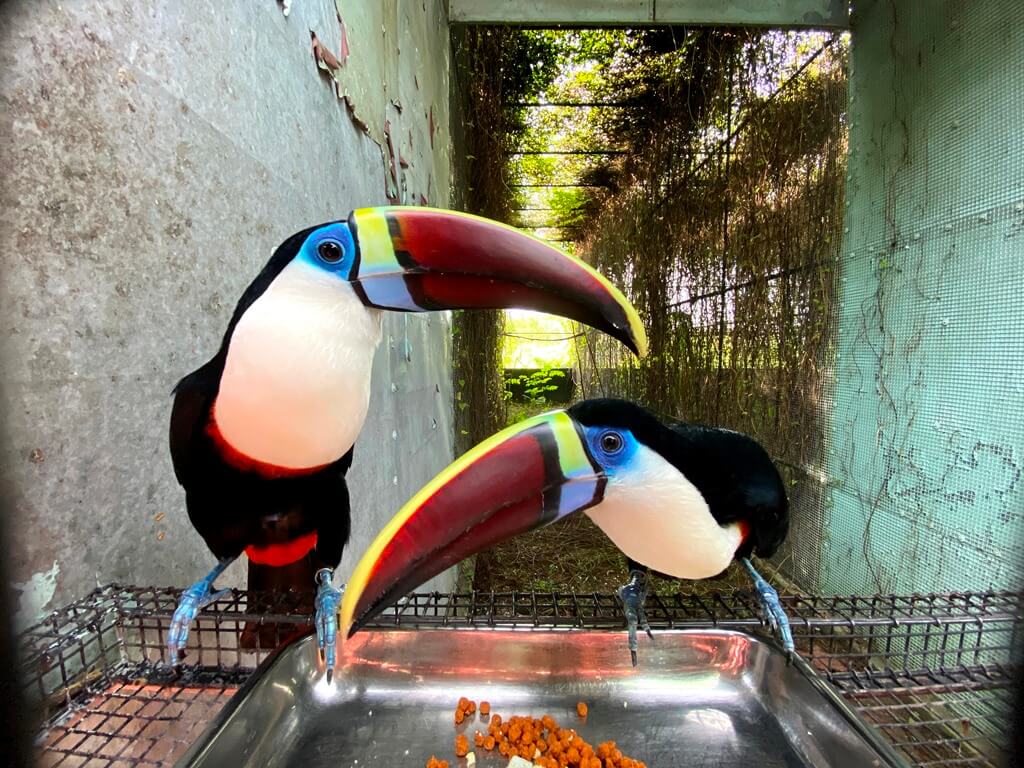
Conservation of species through captive breeding programmes
In the last 600 years, over 190 species of birds have been wiped out from the face of the earth. The rate of extinction is ever increasing. Currently the threat of extinction stares at an estimated 1200 different species of birds the world over. A world without birds would be one without colour, music, joy and dreams. Sunshine BirdWorld wants to make sure that we don’t head towards that!
About UsLatest from the Blogs
Can’t find the answers you’re looking for?
Captive Breeding basically increases numbers. In the wild due to rampant habitat destruction and unwanted human interferences at multiple levels, together with certain unavoidable factors like unfavourable climatic conditions, inadequate food availability and challenges from predators, continuation of species is a difficult proposition. When breeding is attempted in captivity, the birds are given a secured and protected environment, which would facilitate optimum breeding conditions and minimise loss of chicks. In captivity we can make sure that the factors which cause the loss of babies are removed and the maximum reproductive potential of a bird is realised. Specially for birds which are rare and breed less, we go for artificial incubation of the eggs and hand-rearing of the baby birds. In this way, the number of babies of a particular pair of birds goes up. This helps a lot in creating a Noah’s Ark, whereby a species is saved from extinction, particularly so for birds whose habitat destruction has been so extensive that their survival has been at stake. Captive breeding is the only means by which extinction can be prevented at the very end. It provides us with the modus operandi by which a species can be preserved till the time humans regain their senses and start nurturing the environment to which these birds belong.
Besides, captive breeding produces a larger number of baby birds, which ensures maximisation of genetic pool extension and provides greater numbers of available birds forfurther utilisation by breeding centres and aviculturists.
As of today, Sunshine BirdWorld is not open to the general public. We do make exceptions for specific wildlife enthusiasts and aviculturists, who are allowed farm visits on pre-approved days. In the future, Sunshine BirdWorld is planning to open a “Bird Park”. Once this project sees the light of day, this park will welcome all nature lovers, including the general public.
Sunshine BirdWorld breeds birds and sells some of them to bird parks, breeding centres, zoological gardens, responsible aviculturists and pet enthusiasts.
As per The Wildlife Act 1972, it is illegal to keep Indian birds in captivity. Therefore, we are restricted to the domain of exotic bird keeping. However, we have a dream... a dream of keeping and breeding Indian birds which are facing a steady decline in population and releasing them back to the wild to repopulate them in their natural habitat. If and when the Government of India gives us permission, we would be delighted to do our bit in repopulating our forests and our skies with indigenous birds.
Sunshine BirdWorld caters to a huge range of birds from different continents of the world. Our diets are specifically designed for each variety of birds according to the food they would procure in their natural habitat. So a bird from Australia would not have a diet similar to one from, say, Brazil. Similarly, a bird from colder region would have a different diet from a bird from a tropical climate. Thus the diet of each variety or species of our bird is engineered to mimic its season specific natural diet, which would cater to its particular nutritional requirement during specific periods of its life cycle.
The cleaning protocol of each and every aviary at Sunshine BirdWorld is very well defined. There are specific times for giving food to the birds and specific times for cleaning their aviaries. We maintain different protocols for cleaning different aviaries. Some aviaries require sweeping, some require positive pressure hosing while others need to be mopped on a daily basis. All aviaries, wires, perches and utensils are regularly sprayed with different disinfecting agents.
General sanitisation protocols are followed for prevention of diseases. All staff members and guests are sanitised with disinfectant sprays upon entry to each section of our premises. Foot baths containing broad spectrum anti bacterial and anti viral solutions are placed at multiple points for maintenance of optimum hygiene. Staff members are subjected to annual health examinations to prevent cross contamination of infectious diseases.
All aviary blocks have a wired roof to prevent wild birds from coming in contact with our birds. Wild birds may be exposed to a wide range of diseases which may infect our flocks. All new birds which come to Sunshine BirdWorld are quarantined as per protocols for 45 days to six months before being introduced to our existing flocks. They are also subjected to a range of tests to ensure that they are disease free at the time of the introduction. Besides, a stringent protocol of regular deworming of all birds is followed at routined intervals. Supplementation with vitamins and minerals is also done to ensure the optimal health of our birds. The mental health and happiness of all our birds are particularly attended to, according to differing requirements of different species of birds. Environmental enrichment forms an integral part of this aspect and is specifically nurtured at Sunshine BirdWorld.
The arrival of a new bird at Sunshine BirdWorld is always exciting for us. A new bird may come from a breeder, a trader or a chain of breeders and traders. In the process, the bird may contact one or more infectious agents or be inflicted with ailments, of which we, at the receiving end, may not have an idea. We try to minimise such afflictions by accepting new birds only from reputed breeders and traders who do maintain a basic degree of health and hygiene of birds at their end. At the same time, we keep any newly acquired bird isolated from our own flocks for a minimum of 45 to 180 days, during which we mandatorily run some investigations on the bird and provide it with basic prophylactic antibiotics and anti fungal medications. This goes a long way in preventing introduction of diseases in our own flocks and also acclimatises the new bird to the environment and feeding schedules of Sunshine BirdWorld. This in turn minimises any stress the new bird may be subjected to in its new abode at Sunshine BirdWorld.
Courses, workshops, training programmes, classes, exposures and symposia are held during our Conferences, which may be availed by members of the public. Besides, lectures addressed by Dr Debashis Banerjee and Dr Anindita Banerjee on different platforms on a variety of avicultural topics are available on various social media sites which can be accessed by every one.
During extreme summers we experience temperatures in the range of 40 to 45 degrees Centigrade. This is the time when we have to take extreme care for our birds. We have an elaborate network of misting and fogging systems, which is operated with cooled water and ice. It is basically a pressurised waterline which is designed to decrease the ambient temperature upto 8 to 10 degrees Centigrade. This is a very helpful system to ensure the safety of our birds during the hottest months of the year.
Generally in our part of the world, the coldest temperatures encountered are in the range of 5 degrees Centigrade (for a few days of each year), which are well tolerated by the majority of our birds. However, we need to shift a few birds like Grass Parakeets and some Finches to indoor heated quarters during such cold waves.
Copyright © Sunshine BirdWorld 2021
